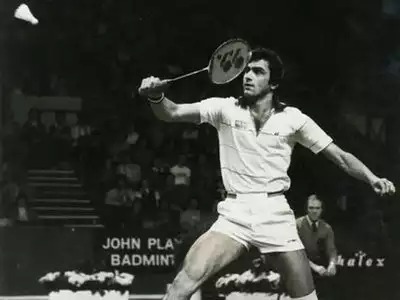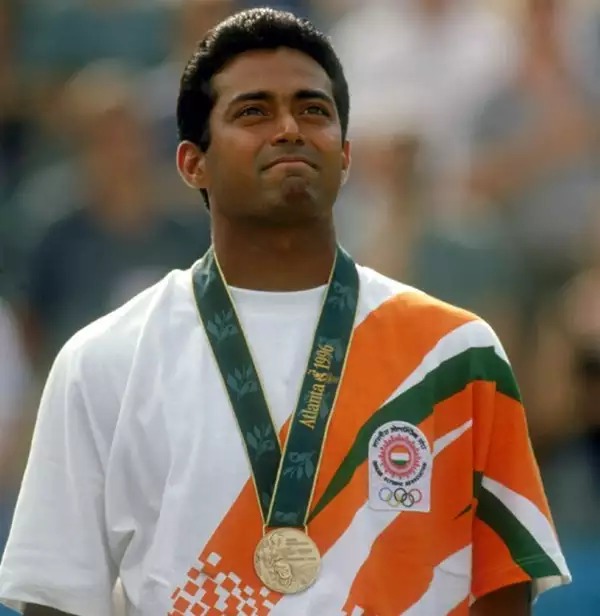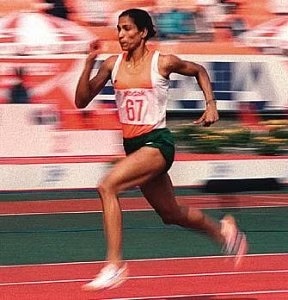
A Revsportz Exclusive by Boria Majumdar
As India marks 76 years of independence, it merits a very special look back into the history of the nation’s sport. As result, we at RevSportz decided to compile the greatest moments in the history of Indian sport in the 76 years between 1947 and 2023. We will carry the list in three parts, and in chronological order. This is Part 2.
1977: Michael Ferreira wins World Amateur Billiards and World Open Billiards titles
Following in the footsteps of Wilson Jones, Michael Ferreira won the World Amateur Billiards title and continued to rule over the sport for the best part of the next decade. In many ways he was the first of a chain of Indian world champions in Billiards.
1980: Prakash Padukone becomes first Indian to win the All England Title
History was created for Indian badminton when Prakash Padukone became the first Indian to win the All England Championships, defeating Liem Swie King, the two-time defending from Indonesia, in straight games. Padukone, seeded joint-third, had beaten Morten Frost Hansen, th second seed from Denmark, in the semi-final.

1980: India win gold in hockey in Moscow, the last one till date
With the western nations boycotting the Games, India tasted gold in Moscow after 16 years, beating Spain 4–3. Congratulating the Indians on the victory, Horst Wein, the German coach of the Spanish team, said that the gold medal would help India return to the pole position in world hockey. According to him, the young team was the best India had sent to the Olympics for some time. It was quick and its players fit. Its ability to swiftly counterattack and keep fighting until the end was something the European teams had to take note of.
1982: Delhi stages the 1982 Asian Games, and Appu becomes a household name
Rarely has a sporting event so fundamentally transformed a country as the 1982 Delhi Asian Games transformed India. Appu, the tubby elephant mascot of the Games, was symbolic of the advancing, prosperous nation-state, and became a household name across the country, especially at a time when colour television was also slowly making inroads.

1983: India win the Prudential World Cup
Even the most ardent Indian fans thought it a dream. Some dreams, however, come true. The significance of this victory becomes evident when we note that, prior to June 25, 1983, India’s victories were hardly accorded the treatment they merited. News of English country games were reported in equal measure and the sports pages of newspapers were duly reporting news of other sports, be it local hockey, tennis or kho kho. Post-1983, everything changed. The genesis of today’s cricket page was born then, a media revolution which helped make cricket India’s secular religion.
1984: PT Usha comes fourth in national heartbreak at the Los Angeles Olympics
We will always debate what might have happened had PT Usha thrust herself forward a millimetre, enough to nudge ahead of Romania’s Cristina Cojocaru, who caused national heartbreak when the results of the 400metres hurdles were announced at Los Angeles in 1984. When news trickled in that Usha had missed the bronze medal by one-hundredth of a second, the country was plunged into mourning.
1984: Bachendri Pal climbs Mount Everest
Pal herself put it best: “I had done it. It is difficult to analyse and describe that initial feeling. I thought of God, my father and my mother. Sometime later I recalled the feeling I experienced after the avalanche (which had almost wiped away the entire climbing party), that “Durga Ma” had spared my life so that I could climb to the top. So, in a way, I knew I would reach the summit.”
1985: India win the World Championship of Cricket in Australia, in Sunil Gavaskar’s last match as captain
The perfect follow-up. As soon as the Australian television network beamed the moment of India’s victory to millions of Indian cricket fanatics back home, the nation erupted like a volcano. Thrashed 0-5 by the West Indies in the winter of 1983, and 1-4 by England in 1984, many had begun to doubt the Indians under Gavaskar. The victory was sweeter because the Indians had bowled out every opposition (except Pakistan, who scored 176-9 in the final) and the top order batted like champions. Unlike in 1983, nothing was left to chance. India was certainly a cricketing superpower.
1985: Geet Sethi wins World Amateur Billiards Championship
Beating two of the biggest legends, Michael Ferreira and Bob Marshall, Geet Sethi scripted history in August 1985 by winning the World Amateur Billiards title for the first time. He has since gone on to win many more laurels for himself and India, but the first will forever rank as the best.
1985: Usha wins five golds in Jakarta at the Asian Track and Field Meet
Usha, arguably India’s best-ever female track and field athlete was at her absolute best at the Asian Track and Field Championships in Jakarta, Indonesia. She won five gold medals and added a bronze in the 4×100 relay.
1986: Tied Test in Chennai
Despite being a match that India did not win, this Test played at Chepauk constitutes a glorious episode in India’s cricket history. The second tie in the history of Test match cricket, it ranks as one of the most interesting games ever played. In the fourth innings, India had 87 overs to get 348.
Interestingly, only one amateur photographer managed to take the defining picture of the match. It has Ravi Shastri, the non-striker, with his arm raised, asking Maninder Singh to stay back in his crease. Greg Matthews, the bowler, is all set to explode and Allan Border at silly point appears dazed. Vikram Raju, man of the moment, has his finger raised for the last time in a Test match.
1987: Viswanathan Anand wins the World Junior Chess Championship
Viswanathan Anand has won a record five world chess titles, making him one of India’s greatest sporting legends. He arrived on the sports scene at a very young age. Since then, there has been more than fifteen changes in the government at the centre, the country has moved from import substitution to liberalisation, and the Indian skies have opened up to herald an unprecedented media revolution. One thing, however, has remained constant – his array of achievements, which began with the world junior chess title in 1987.
1989: Sachin Tendulkar debuts for India against Pakistan in Pakistan
In his debut series against Pakistan, it was a terrifying thought to think how a boy of 16 would stand up to the likes of Imran Khan, Wasim Akram and Waqar Younis, the express debutant. The nation’s worst fears came true when he was hit on the nose by a Waqar scorcher in Sialkot. Navjot Singh Sidhu, batting at the other end, recounted later: “My immediate reaction was he has to be rushed to hospital. I was about to run to the other end when I saw Sachin raise his hand. In his squeaky voice, he said, ‘Mein khelega’. He had blood all over his face but never once did he think of leaving the field.” Those two simple words, “Mein khelega”, best summed up Tendulkar.

1990: India wins Kabaddi gold at Asiad in Beijing
This was the first time that Kabaddi was introduced at the Asian Games. India won the inaugural gold, and continued to win it in the subsequent five Asian Games in 1994, 1998, 2002, 2006 and 2010.
1991-92: India masterminds South Africa’s re-entry into international sport after 22 years
Nelson Mandela’s release from prison and return of the African National Congress the year before marked the end of apartheid in South Africa. India was the first country to invite South Africa for an ODI series after masterminding their readmission into the ICC, an initiative led by the legendary Jagmohan Dalmiya. The series is famous for the duel between Allan Donald and Sachin Tendulkar at Eden Gardens, Calcutta.
1993: BCCI’s sale of telecast rights to a foreign broadcaster
Indian cricket’s first step into becoming the multi-million-dollar industry it is now. Till 1992, the BCCI had a deficit of 62 lakh rupees. It all changed when the BCCI sold the telecast rights for the 1993 England series for 650,000 dollars. Doordarshan sued the BCCI over public interest issues and the controversy threatened the cancellation of the Hero Cup telecast in November 1993. The Supreme Court finally ruled in favour of changes in broadcast regulations, making Indian cricket the lucrative property it is now.
1994: Jaspal Rana wins gold at the Hiroshima Asiad in the centre-fire pistol event
This gold medal marked a new beginning for Indian shooting, which has since accounted for the maximum number of individual and team medals in international competitions for India. Jaspal had earlier won gold at the 46th World Shooting Championship (Junior Section) with a world record score in Milan, Italy, in 1994. He was also the youngest recipient of the Arjuna Award at 18.
1994: Kapil Dev breaks Richard Hadlee’s record for most Test wickets
After a rather long wait, Kapil Dev got to the pinnacle of Test wicket-takers. For a fast bowler from India, this was once considered unimaginable and that only helps in understanding the enormity of the achievement.
1996: World cup cricket staged in India for the second time
At the very start of the World Cup, history was made when a joint India-Pakistan team toured Sri Lanka to alleviate fears of the Australians and the West Indians. Sachin Tendulkar scored the most runs in the competition, 523, but failed to take India to the final. It was eventually a sad end to a memorable World Cup campaign.
1996: Leander Paes wins bronze at the Atlanta Olympics
Paes won India’s first individual medal in 44 years, beating Fernando Meligeni with an injured wrist. Earlier, he lost to Andre Agassi, the eventual champion, in the semi-final. His medal was the first won by an Indian in an individual event after KD Jadhav’s freestyle wrestling bronze at the 1952 Helsinki Olympics. He was awarded the Khel Ratna for his performance.

1997: Jagmohan Dalmiya, First Indian President of the ICC
The successful organization of the 1996 World Cup was a big boost for the sub-continent and even before the conclusion of the tournament, a decision was taken by the BCCI, with overwhelming support from Pakistan and Sri Lanka, to propose the name of Jagmohan Dalmiya as the next Chairman of the International Cricket Council (ICC). Finally, after a lot of legal wrangling and behind-the-scenes politicking, members unanimously accepted Dalmiya’s name as the first ICC President.
1998: Coca-Cola Cup in Sharjah – The Desert Storm innings
The Coca-Cola Cup in Sharjah in April 1998 was undoubtedly Sachin Tendulkar’s tournament. With successive scores of 40, 80, 38, 143 and 134, there was no doubt about who the man of the tournament was. The Opel Astra, which he won as the player of the series, was another slice of his birthday cake. His 143, which propelled India into the final amid a desert storm was one of the best one-day knocks ever played, and his 134 in the final was enough to shut out Steve Waugh’s Australia.
1998: India win Asian Games hockey gold
India won the Asian Games hockey gold medal after a long hiatus, beating South Korea in the final. Ashish Ballal became a national sensation after stopping two penalty strokes in the tie-breaker. Their last win had come in 1966. Dhanraj Pillay scored 11 goals in six matches and was the star for India. India’s women athletes, led by Jyotirmoyi Sikdar, also had a good Asian Games, winning multiple gold medals.
1999: Leander Paes and Mahesh Bhupathi make history
Leander and Mahesh made history for India by becoming the world No.1 doubles pair. They reached the final of all the grand slams, winning the French Open and Wimbledon. Leander won the mixed doubles event at Wimbledon, partnered by Lisa Raymond. They have both won many more doubles and mixed doubles grand slams since, and will surely go down in history as two of the best doubles players ever.
2000: Karnam Malleswari wins bronze at the Sydney Olympics
It was sometime in the afternoon India time, when Indian women’s sport took a giant leap at the Sydney Olympic Games. I still remember the elation in the voice of the All India Radio newsreader when she revealed to the nation Karnam Malleswari’s feat, finally getting Indian women into the Olympic medal-winners’ list. Her bronze in the 69 kg women’s weightlifting category was India’s lone medal in Sydney, and Malleswari was the only spark in an otherwise disappointing Olympics.




